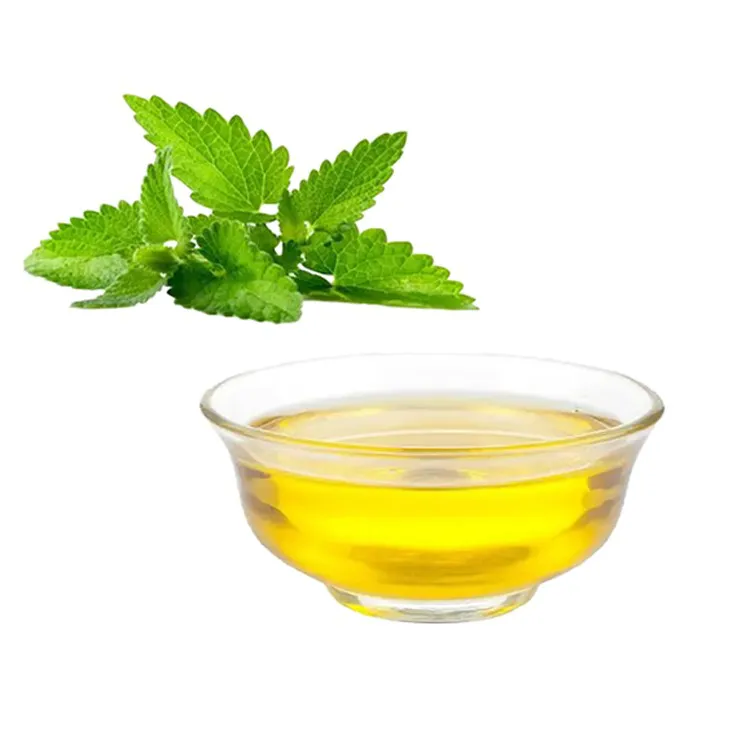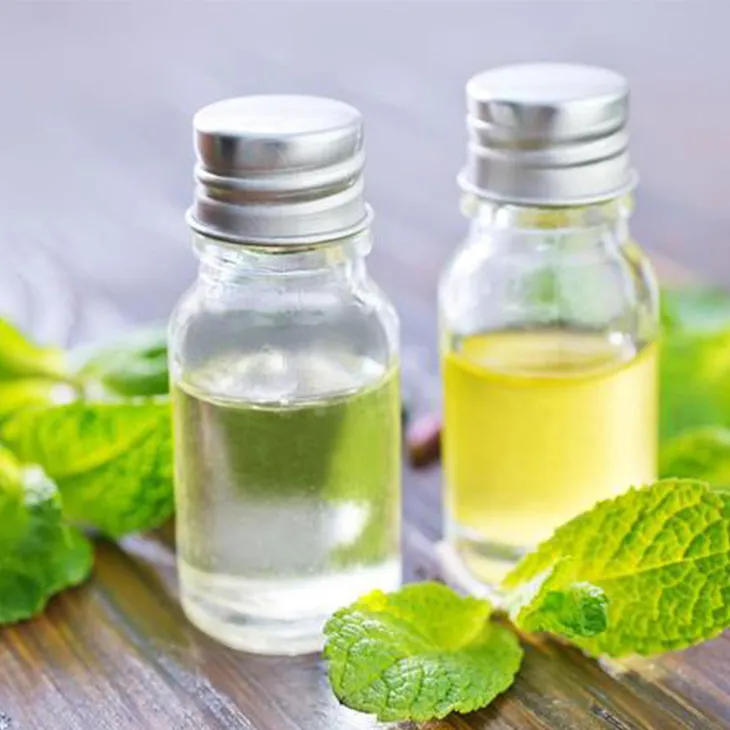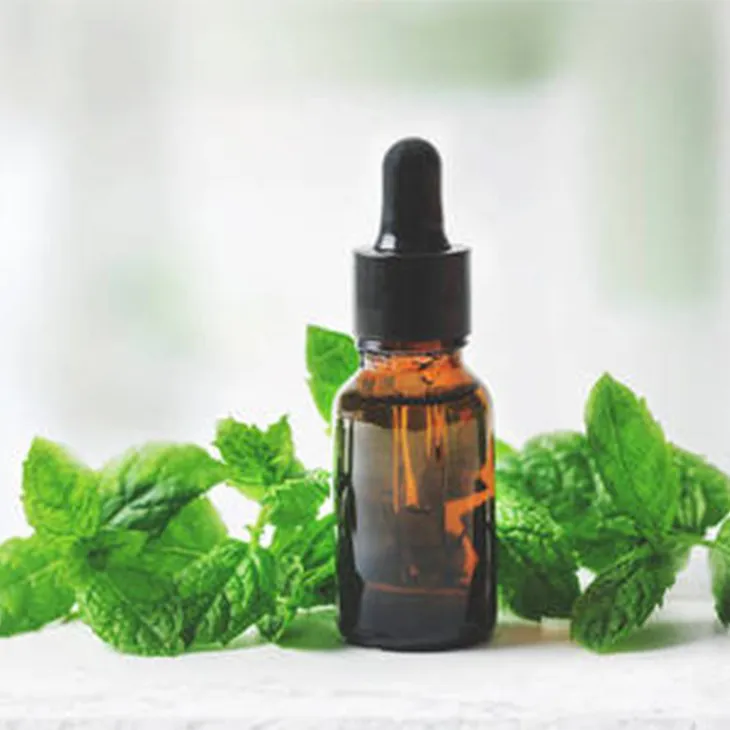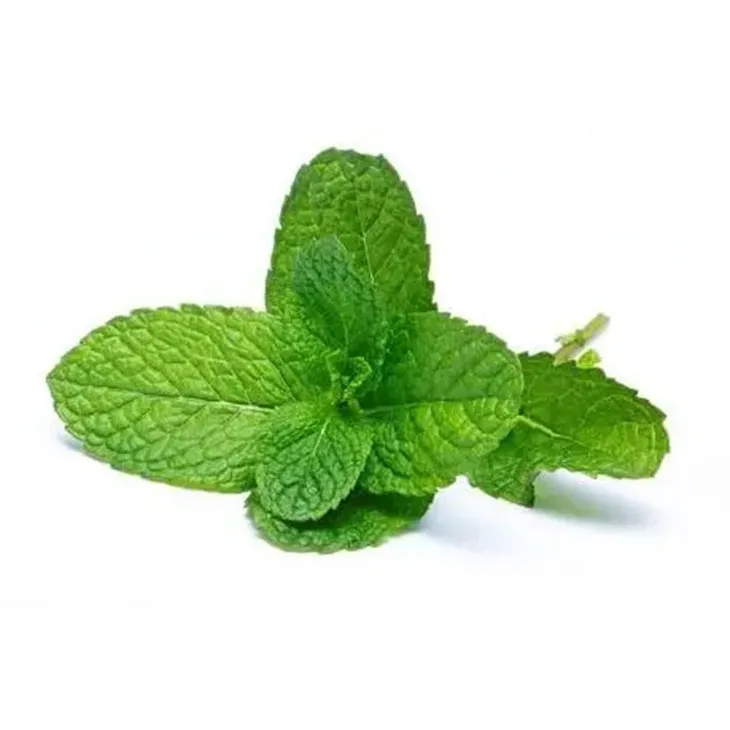- 0086-571-85302990
- sales@greenskybio.com
The best organic peppermint oil.
2024-11-29

Introduction to Organic Peppermint Oil
Organic Peppermint Oil is a remarkable natural product that has been cherished for centuries. It is derived from the peppermint plant, which is known botanically as Mentha piperita. The term "organic" implies that the peppermint used for oil extraction is grown without the use of synthetic pesticides, fertilizers, or genetically modified organisms (GMOs). This ensures that the final product is pure and free from harmful chemical residues.
The production of the best organic Peppermint Oil begins with carefully selected peppermint plants. These plants are typically grown in ideal environmental conditions, such as well - drained soil and sufficient sunlight. Organic farming practices not only benefit the quality of the oil but also contribute to the overall sustainability of the ecosystem where the peppermint is cultivated.

The Extraction Process
The extraction of peppermint oil is a crucial step in obtaining a high - quality product. Steam distillation is the most common method used for extracting organic peppermint oil. In this process, steam is passed through the peppermint leaves and stems. The heat from the steam causes the essential oil glands within the plant material to release their contents.
The resulting vapor, which contains the peppermint oil, is then cooled and condensed. This condensation process separates the oil from the water, as oil and water do not mix. The separated oil is then carefully collected and further purified to remove any remaining impurities. This meticulous extraction process is designed to preserve the natural chemical composition of the peppermint oil, which is responsible for its numerous beneficial properties.

Antibacterial and Antifungal Properties
One of the most significant aspects of the best organic peppermint oil is its antibacterial and antifungal qualities. These properties make it a valuable natural alternative to synthetic antimicrobial agents.
Studies have shown that peppermint oil contains compounds such as menthol, which has antibacterial activity. When used in cleaning products or applied topically in diluted form, it can help inhibit the growth of bacteria. For example, it can be effective against common household bacteria like Escherichia coli and Staphylococcus aureus.
In terms of antifungal activity, peppermint oil can be useful in preventing and treating fungal infections. It has been found to be effective against certain types of fungi, including those that can cause skin infections or affect the growth of plants. For instance, in gardening, a diluted solution of peppermint oil can be sprayed on plants to protect them from fungal diseases.

Health Benefits: A Natural Decongestant
Peppermint oil is widely recognized as a natural decongestant. When inhaled, it can have a powerful effect on the nasal passages and respiratory system.
The menthol in peppermint oil provides a cooling sensation. This cooling effect helps to soothe irritated nasal membranes and can reduce inflammation. When used in a steam inhalation or in a diffuser, it can help to open up blocked nasal passages, providing relief from congestion caused by colds, allergies, or sinus infections.
For example, if you are suffering from a stuffy nose due to a cold, adding a few drops of organic peppermint oil to a bowl of hot water and inhaling the steam can quickly alleviate the congestion. This natural remedy is gentle yet effective, making it a popular choice for those who prefer to avoid over - the - counter decongestant medications.

Stress and Anxiety Relief
The invigorating scent of peppermint oil has a profound effect on the mind and emotions, making it an excellent tool for relieving stress and anxiety.
When diffused in a room, the aroma of peppermint oil can create a calming and relaxing atmosphere. It can stimulate the olfactory nerves, which in turn send signals to the brain. These signals can trigger the release of certain neurotransmitters, such as serotonin, which is associated with feelings of well - being and relaxation.
Many people find that using peppermint oil in a diffuser during a stressful workday or before bedtime can help them unwind and reduce feelings of anxiety. Additionally, some individuals may choose to carry a small bottle of diluted peppermint oil with them and inhale it when they feel stressed in public situations.
Culinary Uses
Peppermint oil is not only beneficial for health and cleaning but also adds a unique and refreshing flavor to culinary creations.
In baking, it can be used to flavor cakes, cookies, and muffins. A few drops of peppermint oil can transform a simple vanilla cake into a mint - flavored delight. It pairs well with chocolate, creating a classic and popular flavor combination.
In beverages, peppermint oil can be added to tea, coffee, or homemade cocktails. A drop of peppermint oil in a cup of hot tea can provide a refreshing and invigorating twist. In cocktails, it can add a cool and minty note, enhancing the overall flavor profile.
In savory dishes, peppermint oil can be used sparingly to add a touch of freshness. It can be added to salad dressings, marinades, or even used to season lamb or fish dishes. However, it should be used in moderation as its strong flavor can easily overpower other ingredients.
Digestive Benefits
Peppermint oil also offers potential digestive benefits. It has been used traditionally to soothe digestive discomfort.
The menthol in peppermint oil can help relax the muscles of the gastrointestinal tract. This relaxation can be beneficial for individuals who experience symptoms such as indigestion, bloating, or abdominal cramps. It can also stimulate the flow of bile, which aids in the digestion of fats.
Peppermint oil can be taken in capsule form for digestive support. However, it is important to follow the recommended dosage and consult a healthcare provider, especially if you have any underlying digestive conditions or are taking other medications.
How to Choose the Best Organic Peppermint Oil
When choosing the best organic peppermint oil, there are several factors to consider:
Purity
Look for peppermint oil that is labeled as 100% pure. This ensures that the oil has not been diluted with other substances. A pure oil will have a more potent aroma and stronger therapeutic properties.
Source
Find out where the peppermint used for the oil extraction is sourced from. Peppermint grown in certain regions may have a higher quality due to favorable growing conditions. For example, peppermint grown in the Pacific Northwest region of the United States is known for its excellent quality.
Certification
Check for organic certifications. Reputable certifications, such as USDA Organic in the United States, ensure that the peppermint oil meets strict organic standards. These certifications provide assurance that the product is free from synthetic contaminants.
How to Store Organic Peppermint Oil
Proper storage is essential to maintain the quality of organic peppermint oil.
Container: Store the peppermint oil in a dark - colored glass bottle. Dark glass helps protect the oil from light, which can degrade its quality over time. Make sure the bottle has a tight - fitting cap to prevent air from entering.
Location: Keep the bottle in a cool, dry place. Avoid storing it in direct sunlight or near heat sources, such as stoves or radiators. A pantry or a cabinet away from the stove is an ideal location.
Shelf life: Organic peppermint oil has a relatively long shelf life if stored properly. However, it is recommended to use it within a few years to ensure maximum potency. Over time, the aroma and therapeutic properties may gradually diminish.
Safety Precautions
While organic peppermint oil is generally safe for use, it is important to take some safety precautions.
Dilution: Peppermint oil is very concentrated, so it should always be diluted before topical application. Undiluted peppermint oil can cause skin irritation in some individuals. A common dilution ratio is 1 - 2 drops of peppermint oil per teaspoon of carrier oil, such as coconut oil or jojoba oil.
Internal use: If you plan to take peppermint oil internally, either in capsule form or added to food or beverages, it is crucial to consult a healthcare provider first. Some people may have sensitivities or underlying health conditions that could be affected by peppermint oil ingestion.
Children and pets: Keep peppermint oil out of reach of children and pets. Ingestion by children or pets can be harmful, and the strong aroma may also be overwhelming for them.
Conclusion
The best organic peppermint oil is truly a multi - faceted wonder. Its antibacterial and antifungal properties make it useful for maintaining a clean and healthy environment. In the realm of health, it serves as a natural decongestant, stress reliever, and offers potential digestive benefits. In cooking, it adds a unique and refreshing flavor to a variety of dishes.
By choosing high - quality organic peppermint oil and using it safely and appropriately, one can fully enjoy the many benefits that this natural substance has to offer. Whether it is for improving well - being, enhancing the flavor of food, or creating a pleasant living environment, organic peppermint oil is a valuable addition to any household.
FAQ:
What are the main benefits of the best organic peppermint oil?
The best organic peppermint oil has multiple benefits. It has antibacterial and antifungal qualities for a clean environment. In health, it can act as a natural decongestant. Its scent can relieve stress and anxiety when diffused, and it can be used in cooking for flavor and potential digestive benefits.
How is the best organic peppermint oil sourced?
The best organic peppermint oil is sourced from organically grown peppermint, which ensures that it is free from synthetic contaminants.
What makes the extraction process of the best organic peppermint oil special?
The extraction process of the best organic peppermint oil is carefully carried out to preserve its beneficial properties.
Can the best organic peppermint oil really relieve stress?
Yes, when diffused in a room, the invigorating scent of the best organic peppermint oil can relieve stress and anxiety.
How can the best organic peppermint oil be used in cooking?
The best organic peppermint oil can be used in cooking to add a unique and refreshing flavor to dishes, and it may also provide potential digestive benefits.
Related literature
- The Benefits of Organic Peppermint Oil in Wellness"
- "Organic Peppermint Oil: Quality and Applications"
- "Peppermint Oil: Organic Sourcing and Health Benefits"
- ▶ Hesperidin
- ▶ Citrus Bioflavonoids
- ▶ Plant Extract
- ▶ lycopene
- ▶ Diosmin
- ▶ Grape seed extract
- ▶ Sea buckthorn Juice Powder
- ▶ Fruit Juice Powder
- ▶ Hops Extract
- ▶ Artichoke Extract
- ▶ Mushroom extract
- ▶ Astaxanthin
- ▶ Green Tea Extract
- ▶ Curcumin
- ▶ Horse Chestnut Extract
- ▶ Other Product
- ▶ Boswellia Serrata Extract
- ▶ Resveratrol
- ▶ Marigold Extract
- ▶ Grape Leaf Extract
- ▶ New Product
- ▶ Aminolevulinic acid
- ▶ Cranberry Extract
- ▶ Red Yeast Rice
- ▶ Red Wine Extract
-
Honeysuckle Pollen
2024-11-29
-
Uridine-5'-monophosphate Disodium salt
2024-11-29
-
Beta Carotene
2024-11-29
-
Polygonum Cuspidatum Extract
2024-11-29
-
Polygonum multiflorum extract
2024-11-29
-
Aguaje Extract
2024-11-29
-
Bilberry Extract
2024-11-29
-
Chasteberry Extract
2024-11-29
-
Medicinal Marshmallow Extract
2024-11-29
-
Konjac Powder
2024-11-29





















